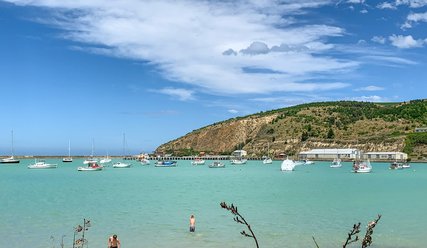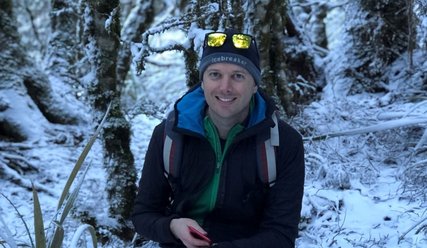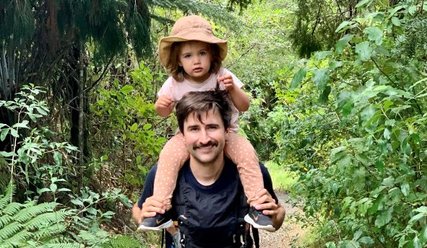Rural hospital medicine makes for an interesting life
For Dr Yan Wong, working as a team to make Clutha Health First a truly integrated general practice and rural hospital began with the simple act of opening doors.
Yan Wong, the medical director of the purpose-built facility offering both primary and secondary level healthcare, took on the role in August 2016 with a clear goal in mind – to improve communication.
“Clutha Health First celebrated its 20-year anniversary in 2018. Over the years, general practice joined the hospital service at different stages. Initially the two teams functioned quite independently of each other,” Yan explains. “At times there has been some mistrust, and simple things like the physical barrier of the doors being closed impacted on mutual understanding.”
Yan talks about how his team focused on working together to identify areas for development and opened themselves up to new opportunities: “We looked at opening the security doors, began having more formal and informal conversations and sharing information with each other and things have improved. If we can work as one team, we can provide a better patient experience and so deliver a better result for the people of the district. And at the end of the day, that’s what we are all about.”
Clutha Health First is based in Balcutha, about a one hour drive from Dunedin. A community owned, not-for-profit organisation, it provides services for the 17,000 people who live in the Clutha district.
The 10-year-old hospital has 15 medical inpatient beds (including a palliative care bed) and two maternity beds. It also provides or facilitates other services such as specialist outpatient clinics, occupational therapy, physiotherapy, radiography and ultrasound services, medical laboratory, mental health services and district nursing.
The general practice serves 8,000 patients with five doctors and two medical nurse practitioners. All patients are dealt with initially by the GP clinic, almost always after practice nurse triage via telephone. Cases are either then seen by a GP or nurse practitioner and then sent to the hospital team if necessary. Billing is handled by administration managers, a happy consequence of the economies of scale and synergies achieved by running the clinic and hospital as one facility.
“Our nurse practitioners bring a lot of skills with them and we find our patients are happy to see them instead of a GP, when appropriate,” says Yan. “There were some issues regarding specialist referrals in the early days but we are largely over that now.
The nurse practitioners also play an active role in the regular clinical governance meetings where all the teams get together to discuss patient cases and any organisational issues when necessary.
“Although we have a lot of informal conversations every day, this meeting gives us an opportunity to hear points of view from all sides,” says Yan. “I make a point of inviting anyone who contributes to the services we provide, such as the St. John representative for example. It’s all about making connections between the teams and making sure the information flows.
A key factor in keeping communication channels open is the integrated IT system, which gives GPs and hospital doctors alike full access to patient notes and treatment plans. All daily hospital clinical notes are done electronically and easily accessible by specialist teams in the DHB hospitals. This is in addition to the South Island wide patient information sharing system.
“There is no reason why this couldn’t happen across the whole country,” says Yan. “It makes such a difference for patient safety and ensuring everyone involved in a patient’s care is on the same page treatment wise.”
As a dual Fellow of rural hospital medicine, and the Royal New Zealand College of General Practitioners, Yan works on the inpatient ward and as a GP and along with other dual Fellows at Clutha Health First, brings an essential perspective that encompasses both sides to the role.
He became interested in rural hospital medicine while undergoing his medical training when a colleague talked about the training opportunities available in the field.
“It seemed to me that rural hospital medicine was a good mixture of general practice and acute medicine that provided for an interesting life,” laughs Yan. “I always knew that being a hospital specialist, with all the studying for exams and fighting to be at the top of the ladder, wasn’t for me. Lifestyle and flexibility was important.


